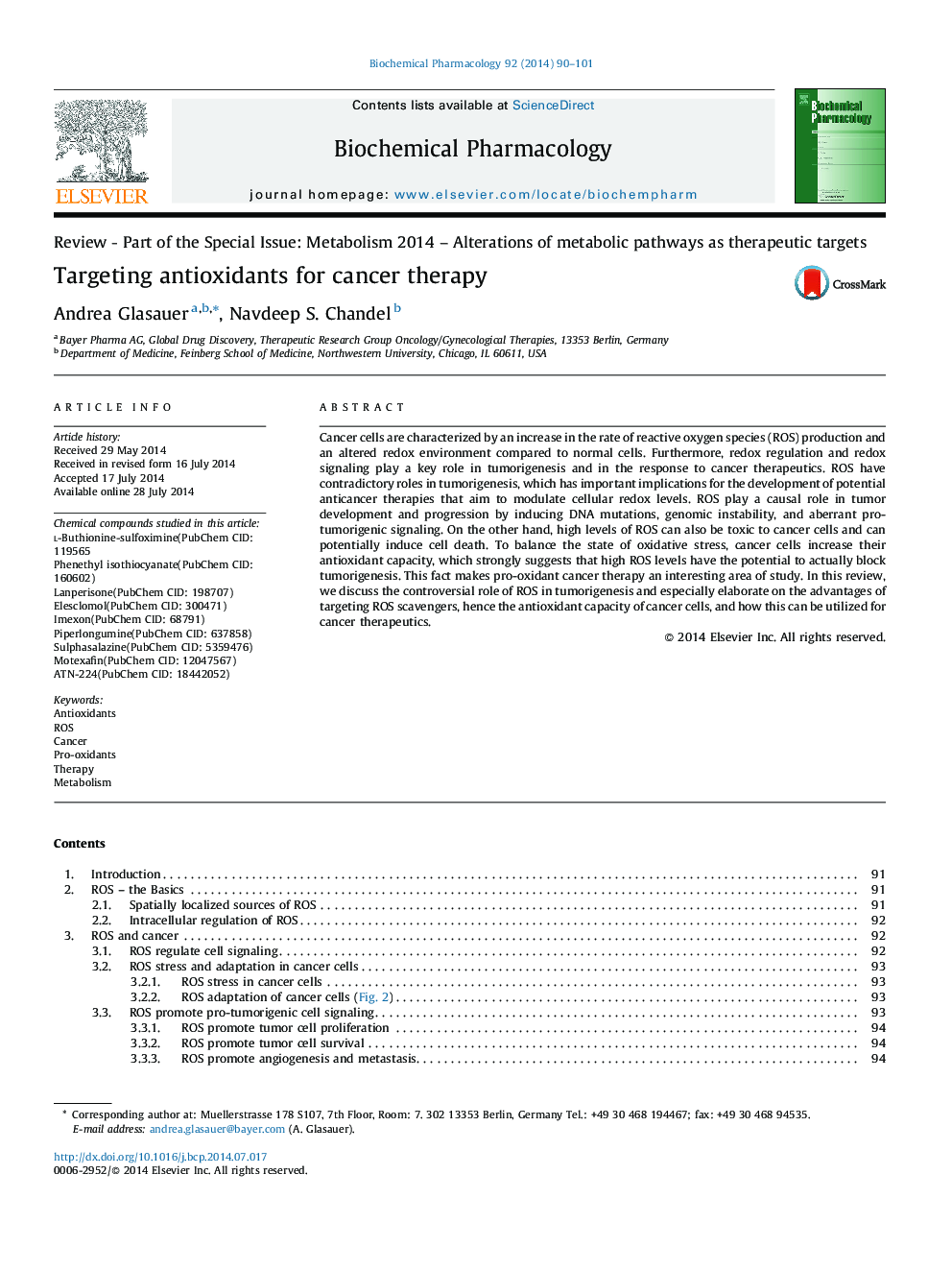| کد مقاله | کد نشریه | سال انتشار | مقاله انگلیسی | نسخه تمام متن |
|---|---|---|---|---|
| 5823438 | 1118327 | 2014 | 12 صفحه PDF | دانلود رایگان |
Cancer cells are characterized by an increase in the rate of reactive oxygen species (ROS) production and an altered redox environment compared to normal cells. Furthermore, redox regulation and redox signaling play a key role in tumorigenesis and in the response to cancer therapeutics. ROS have contradictory roles in tumorigenesis, which has important implications for the development of potential anticancer therapies that aim to modulate cellular redox levels. ROS play a causal role in tumor development and progression by inducing DNA mutations, genomic instability, and aberrant pro-tumorigenic signaling. On the other hand, high levels of ROS can also be toxic to cancer cells and can potentially induce cell death. To balance the state of oxidative stress, cancer cells increase their antioxidant capacity, which strongly suggests that high ROS levels have the potential to actually block tumorigenesis. This fact makes pro-oxidant cancer therapy an interesting area of study. In this review, we discuss the controversial role of ROS in tumorigenesis and especially elaborate on the advantages of targeting ROS scavengers, hence the antioxidant capacity of cancer cells, and how this can be utilized for cancer therapeutics.
Journal: Biochemical Pharmacology - Volume 92, Issue 1, 1 November 2014, Pages 90-101
